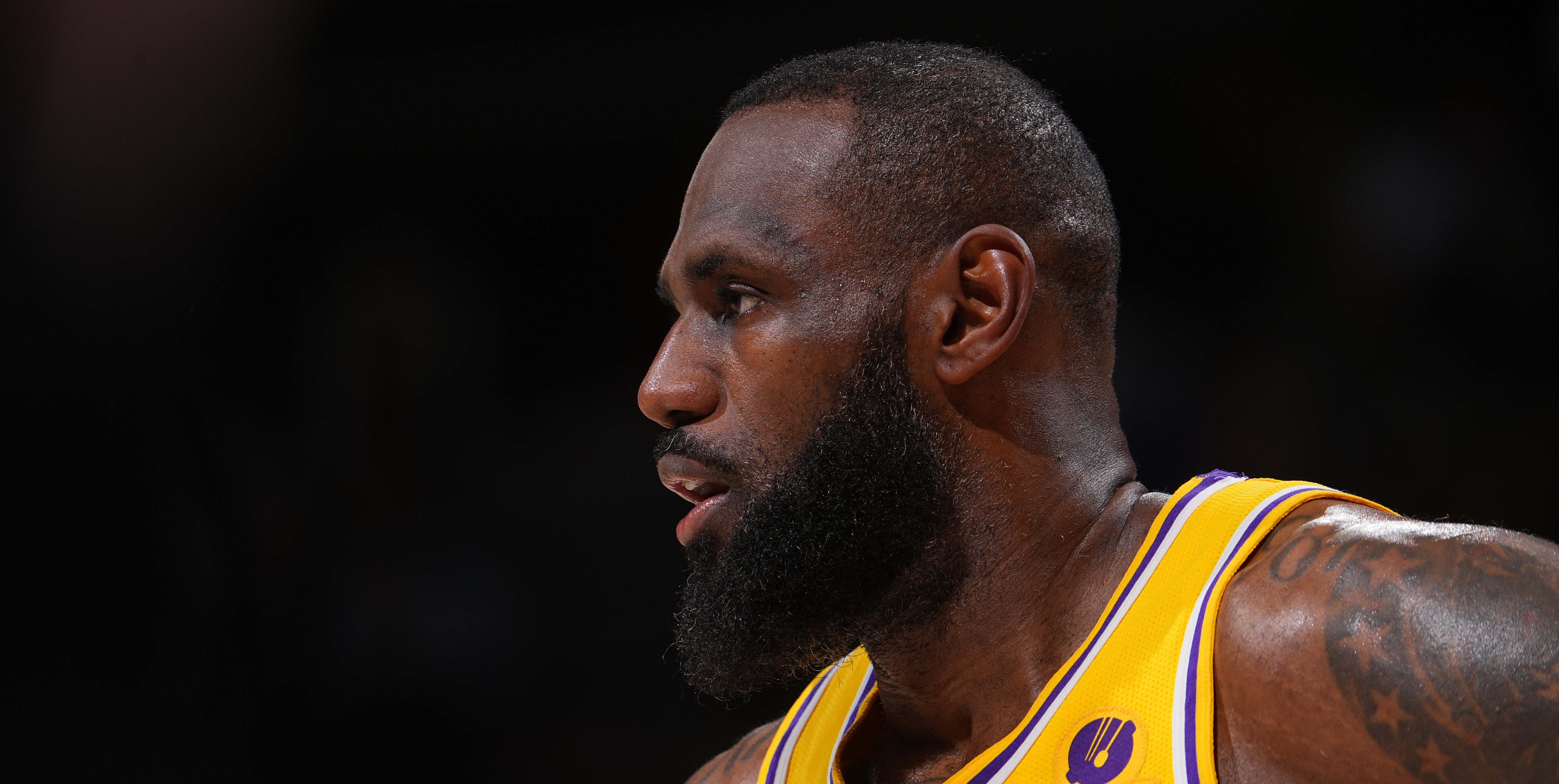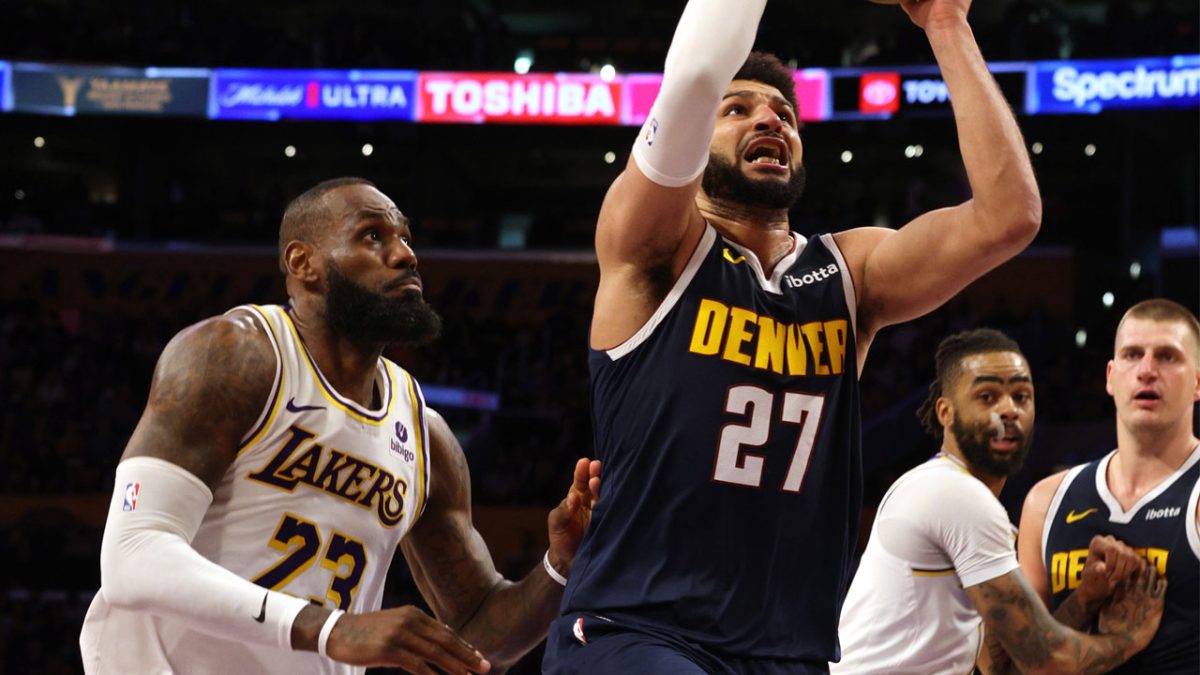SAN FRANCISCO – Spelling the simplest words was a nightmare, and trying to read anything was downright terrifying. Life hits hard when a child sits in an elementary-school classroom seeing other children grasp what he cannot.
It wasn’t much better at home. His mother and father provided love, but their attempts at tutoring led to mounting frustration.
“I would say one thing and write something else,” Gary Payton II told NBC Sports Bay Area in an exclusive "Dubs Talk" interview. “During the sentence, I would skip a word and write it. And then my parents were just confused. Why am I not getting things similar to my classmates and whatnot? And I was also thinking that, too. Like why am I not understanding this.
Stay in the game with the latest updates on your beloved Bay Area and California sports teams! Sign up here for our All Access Daily newsletter.
“They were pretty hard on me at first. They didn’t know.”
All his parents understood was that their son needed help. While much of dad’s energies were devoted to being a breadwinning NBA All-Star, Monique was consulting with teachers, seeking help for “Little G.” When his second-grade teacher mentioned the possibility of dyslexia, Monique swung into action.
Dyslexia, described by the International Dyslexia Association as “a specific learning disability that is neurobiological in origin, characterized by difficulties with accurate and/or fluent word recognition and by poor spelling and decoding abilities.”
This, she thought, sounded like what her son might be dealing with.
Golden State Warriors
Payton was tested, and that was the diagnosis – but only the first step to unraveling the psychological impact accumulated over years.
The next step involved the actor Henry Winkler, who gained fame in the role of Arthur “Fonzie” Fonzarelli in the TV comedy “Happy Days” that ran from 1974 through 1984. Winkler was 31 when he was diagnosed in 1977 with dyslexia. He had spent nearly two years in Hollywood struggling to read and recite scripts.
Winkler, in a recent interview with ABC, conceded that he was “sitting around that first reading of the script with the entire cast, completely covered my shame with humor” because he stumbled throughout.
Monique read that Winkler was dyslexic, contacted his representatives and arranged a meeting. “Little G” did not know of “The Fonz,” but his mother did. Winkler made himself available.
“We meet him and he literally tells me it's OK, that he was a grown man and he still has an assistant that actually helps with spelling,” Payton recalls. “And he still gets help for reading and whatnot. He's afraid to read in front of groups and stuff like that.
“After meeting with Mr. Winkler, that helped me a lot and gave me the confidence to be able to say that I need help. And after that, my mom found out and broke down because they were so hard on me.”
The diagnosis and follow-up changed the trajectory of Payton’s childhood. He went from a child who didn’t enjoy school and telling his mother “I don’t want to be dumb,” to a solid student who, in May 2023 earned his degree in Human Development and Family Science from Oregon State University.
Reflecting on his childhood struggles, Payton has decided to reach out to others who might be experiencing the same challenges. Just as he had been touched and encouraged by a famous actor, he would extend the same generosity as an NBA player.
Payton founded, during the 2021-22 NBA season, the Gary Payton II Foundation. The co-executive directors are his mother and his sister, Raquel Payton Childs, who happens to be a teacher.
The foundation acts, according to its website, “as a conduit for Dyslexia-awareness, supporting early screening, detection, and certified assessment for youth and young adults with languages-based learning challenges.”
Recently, the foundation acquired a truck to offer mobile services to test those who otherwise might not have the means to get tested.
“It goes out and pulls up to neighborhoods and [does] testing because it's so hard for parents and kids to go out and find testing,” Payton says. “We’re just trying to make ways to identify the first problem. Just to identify. And then, second, is to treat it and get the help you need.”
Payton’s life was changed by a diagnosis and an actor. He’s paying it forward, hoping to change lives with diagnosis and outreach.


